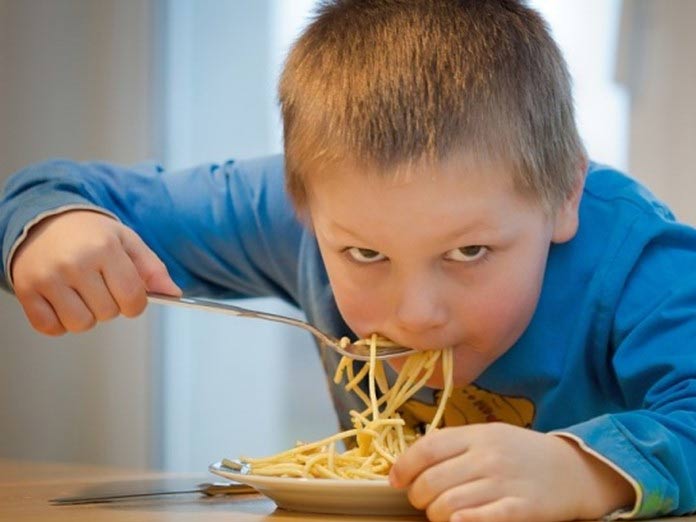Live
- HC announces verdict in Kannada for the first time
- Uttam releases water from Nizam Sagar for Rabi crop
- TG to be Rs 84L cr economy in 10 years: Sridhar Babu
- First TGCHE, V-Cs meet deliberates on higher education roadmap for state
- 2 senior professors to join NALSAR
- Former Principal of SPW College passes away in US
- Hyderabad: Govt out to remove electric poles, transformers on roads across city
- KCR goes into huddle with State legal eagles
- Formula E race: KTR to be arrested soon?
- Film fraternity stands with Allu Arjun
Just In

Unhealthy food endorsements by video bloggers, or vloggers, on Instagram increase childrens intake of such foods, a study suggests
London: Unhealthy food endorsements by video bloggers, or vloggers, on Instagram increase children's intake of such foods, a study suggests.
Children are increasingly exposed to marketing through digital avenues, such as on social media, and the impact of marketing by vloggers on these outcomes has, until now, not been known, said researchers from the University of Liverpool in the UK. The study, published in the journal Pediatrics, examined the effect of social media marketing of snack foods (healthy and unhealthy), via vloggers' Instagram pages, on children's snack intake.
"These findings suggest that the marketing of unhealthy foods, via vloggers' Instagram pages, increases children's immediate energy intake," said Anna Coates, PhD student at the University of Liverpool. "The results are supported by celebrity endorsement data, which show unhealthy food endorsements increase children's unhealthy food intake, but healthy food endorsements have little or no effect on healthy food intake," Coates said in a statement.
During the study 176 children, aged between 9 and 11 years, were randomly split into three equal groups and were shown artificially created, but realistic, Instagram pages of popular vloggers (each has millions of followers). One group was shown images of the vlogger with unhealthy snacks, the second group was shown images of the vlogger with healthy snacks and the third group was shown images of the vlogger with non-food products.
The participants' subsequent intake of snacks (healthy and unhealthy options) were measured. Children in the group that viewed the unhealthy snack images consumed 32 per cent more kilo calories (kcals) from unhealthy snacks specifically and 26 per cent more kcals in total (from healthy and unhealthy snacks) compared with children who saw the non-food images.
There was no significant difference in total kcal intake, or healthy snack kcal intake, between children who saw the Instagram profile with healthy images and those who saw the non-food images. "Young people trust vloggers more than celebrities so their endorsements may be even more impactful and exploitative," Coates said. "Tighter restrictions are needed around the digital marketing of unhealthy foods that children are exposed to, and vloggers should not be permitted to promote unhealthy foods to vulnerable young people on social media," she said.

© 2024 Hyderabad Media House Limited/The Hans India. All rights reserved. Powered by hocalwire.com







